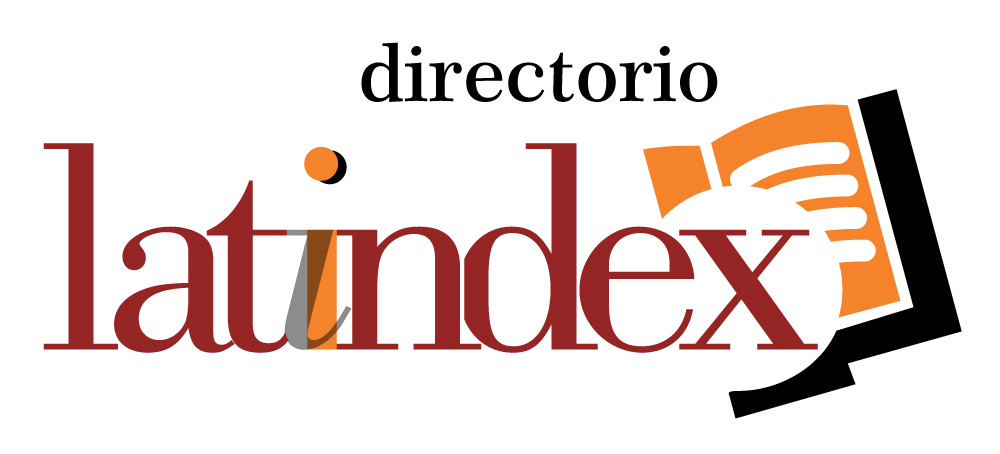Las ambivalencias de la política exterior de la Sudáfrica democrática
Resumen
Palabras clave
Texto completo:
PDFReferencias
Alden, C., & Vieira, M. A. (2005). The new diplomacy of the south: South Africa, Brazil, India and trilateralism. Third World Quarterly. 26(7), pp. 1077-1095.
Bond, P. (2004). Talk left, walk right: South Africa’s frustrated global reforms. Pietermaritzburg: UKZN Press.
Bond, P. (2009). In power in Pretoria? Reply to R. W. Johnson. New left review. 58, pp. 77-88.
Bond, P. (2015). BRICS and the sub-imperial location. En P. Bond & A. Garcia (Eds.), BRICS. An anti-capitalist critique. London: Pluto Press, pp. 15-26.
Cilliers, J. (2017, junio 8). Life beyond BRICS? South Africa’s future foreign policy interests. ISS Africa. Recuperado de https://issafrica. org/research/southern-africa-report/life-beyond-brics-south-africasfuture-foreign-policy-interests
Climate action tracker (2019, junio 17). South Africa country profile. Climate action profile. Recuperado de https://climateactiontracker. org/countries/south-africa/
Conchiglia, A. (2012). Cette Afrique du sud influente mais divisée. En L’Atlas mondes émergents. Paris : Le Monde diplomatique, pp. 112-113.
Cook, N. (2013). South Africa: politics, economy, and U.S. relations (Congressional Report N.o R43130, p. 31). Recuperado de https:// fas.org/sgp/crs/row/R43130.pdf
Davies, R. (1992). Economic growth in a post-apartheid South Africa: Its significance for relations with other African countries. Journal of contemporary african studies, 11(1), pp. 51-71.
Habib, A. (2009). South Africa’s foreign policy: Hegemonic aspirations, neoliberal orientations and global transformation. South African journal of international affairs, 16(2), pp. 143-159.
Habib, A., & Selinyane, N. (2004). South Africa’s foreign policy and a realistic vision of an African Century. En E. Sidiropoulos (Ed.), Apartheid past, renaissance future. South Africa’s 2004. Johannesburg: The South African Institute of International Affairs, pp. 49-60.
Hadebe, S. (2015). South Africa’s post-apartheid foreign policy towards southern Africa, 1994-2014: Partner or hegemon? University of KwaZulu-Natal, Pietermaritzburg.
Hamill, J. (2003). A disguised surrender? South Africa’s negotiated settlement and the politics of conflict resolution. Diplomacy & Statecraft. 14(3), pp. 1-30.
Hamill, J. (2018, febrero 22). Why SA struggles to lead in Africa. Politicsweb.
Recuperado de https://www.politicsweb.co.za/opinion/why-sastruggles-to-lead-in-africa
Holden, P. (2008). The arms deal in your pocket. Johnnesburg: Jonathan Ball Publishers.
Human Rights Watch (2007, febrero 28). South Africa: Migrants abused by officials and farmers. Recuperado de https://www.hrw.org/ news/2007/02/28/south-africa-migrants-abused-officials-and-farmers
Human Rights Watch (2019, abril 15). South Africa: Attacks on foreign nationals. Recuperado de https://www.hrw.org/news/2019/04/15/ south-africa-attacks-foreign-nationals
Johnson Likoti, F. (2007). The 1998 military intervention in Lesotho: SADC peace mission or resource war? International Peacekeeping, 14(2), pp. 251-263. Recuperado de https://doi.org/10.1080/13533310601150875
Lalbahadur, A. (2019, mayo 27). Xenophobia erodes South Africa’s leadership potential. SAIIA. Recuperado de https://saiia.org.za/ research/xenophobia-erodes-south-africas-leadership-potential/
Landsberg, C., & Habib, A. (2003, agosto). Hegemon or pivot? Debating South Africa’s role in Africa. Presentado en centre for policy studies, Johannesburg. Recuperado de https://sarpn.org/documents/ d0000620/P611-Pivotalstate.pdf
Leridon, H. (2015, noviembre). L’Afrique, énigme démographique. Le Monde diplomatique, 12.
Mabula, R. (2018, mayo 18). Whose water is it anyway? Curiosity, Issue. Recuperado de https://www.wits.ac.za/curiosity/stories/whose-wateris-it-anyway.html
Mandela, N. (1993). South Africa’s future foreign policy. Foreign affairs. 72(5), pp. 86-97.
Maunganidze, O. A., & Formica, J. (2018, noviembre 14). Freedom of movement in Southern Africa: A SADC (pipe)dream? ISS Africa. Recuperado de https://issafrica.org/research/southern-africa-report/ freedom-of-movement-in-southern-africa-a-sadc-pipedream
foreign policy: 1994
Naidu, S. (2004). South Africa and Africa: Mixed Messages? En E. Sidiropoulos (Ed.), Apartheid past, renaissance future. South Africa’s foreign policy: 1994-2004. Johannesburg: The South African Institute of International Affairs. pp. 35-48.
Polakow-Suransky, S. (2010). The unspoken alliance. Israel’s secret relationship with apartheid South Africa. Capee Town: Jacana.
Porteilla, R., Hayem, J., Séverin, M., & Dika, P.-P. (2016). Afrique du Sud. 20 ans de démocratie contrastée. Paris: Editions L’Harmattan.
Qobo, M., & Nyathi, N. (2016). Ubuntu, public policy ethics and tensions in South Africa’s foreign policy. South African Journal of International Affairs. 23(4), pp. 421-436.
Robert, A.-C. (2012, diciembre). Impériale Afrique du Sud. Le Monde diplomatique, 14.
Schoeman, M., & Alden, C. (2003). The hegemon that wasn’t: South Africa’s foreign policy towards Zimbabwe. Strategic review for Southern Africa. 25 (1), pp.1-20.
Servant, J.-C. (2012). L’influence de l’Afrique du Sud contestée. En L’Atlas Un monde à l’envers. Paris : Le Monde diplomatique, pp. 112-113.
Sidiropoulos, E. (2019, abril 26). Views on South Africa’s contribution to global affairs over the last 25 years. SAIIA. Recuperado de https:// saiia.org.za/research/views-on-south-africas-contribution-to-globalaffairs-over-the-last-25-years/
Sidiropoulos, E., & Hughes, T. (2004). Between democratic governance and sovereignty: The challenge of South Africa’s Africa policy. En E. Sidiropoulos (Ed.), Apartheid past, renaissance future. South Africa’s foreign policy: 1994-2004. Johannesburg: The South African Institute of International Affairs, pp. 61-84.
Solomon, H. (2010). South Africa in Africa: A case of high expectations for peace. South African journal of international affairs. 17(2), pp.131-147.
Spence, J. (2004). South Africa’s foreign policy: Vision and reality. En E. Sidiropoulos (Ed.), Apartheid Past, Renaissance Future. South Africa’s Foreign Policy: 1994-2004. Johannesburg: The South African Institute of International Affairs, pp. 35-48.
Van Buuren, H. (2017). Apartheid guns and money: A tale of profit. Auckland Park: Jacana.
Williams, C. (2018, octubre 4). Mandela and military force: The moment dictated the means. SAIIA. Recuperado de https://saiia.org.za/research/ remembering-the-moment-that-sa-soldiers-marched-into-lesotho/
| DOI: https://doi.org/10.53766/HumSur |
| |||||||||||






